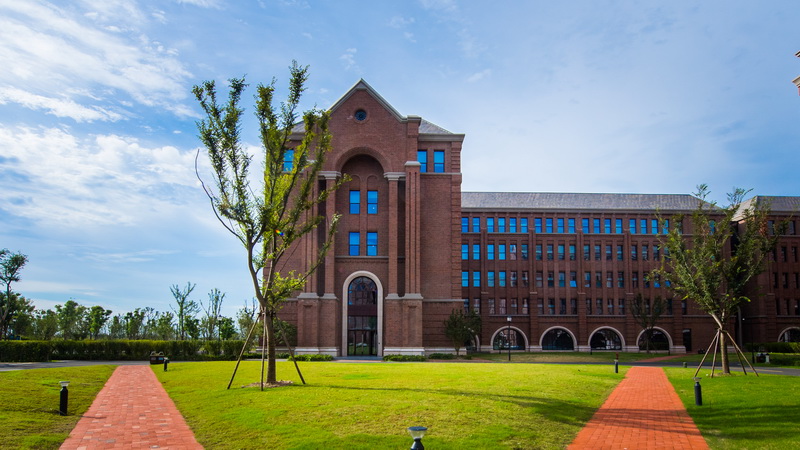Intro to Japanese Culture
EALC 250

Course Code
EALC 250
Credit
3.0 - 3.0
Course Name
Intro to Japanese Culture
Introduction
Topical introduction to Japanese cultural and aesthetic life with attention to cultural and aesthetic patterns as they are reflected in literature, language, and the arts.
This course satisfies the General Education Criteria for:
Cultural Studies - Non-West
Social & Beh Sci - Soc Sci
Intro to Social Psych
PSYC 201

Course Code
PSYC 201
Credit
3.0 - 3.0
Course Name
Intro to Social Psych
Introduction
groups; and the effects of social and cultural factors on the individual.
Intro to VLSI System Design
ECE 425

Course Code
ECE 425
Credit
3.0 - 3.0
Course Name
Intro to VLSI System Design
Introduction
Complementary Metal-Oxide Semiconductor (CMOS) technology and theory; CMOS circuit and logic design; layout rules and techniques; circuit characterization and performance estimation; CMOS subsystem design; Very-Large-Scale Integrated (VLSI) systems design methods; VLSI Computer Aided Design (CAD) tools; workstation-based custom VLSI chip design using concepts of cell hierarchy; final project involving specification, design, and evaluation of a VLSI chip or VLSI CAD program; written report and oral presentation on the final project.
Intro.to Mao Thought & Theoretical System of China Socialism
PS2011

Course Code
PS2011
Credit
5.0 - 5.0
Course Name
Intro.to Mao Thought & Theoretical System of China Socialism
Introduction
<p>This course comprehensively and systematically expounds the two theoretical achievements of Marxism in China—Mao Zedong Thought and the Theoretical System of Chinese Characteristics, try to help students master the general basis and overall task of building socialism with Chinese Characteristics, also to understand the development process of socialism reform and opening up with Chinese Characteristics. Master the general layout of building socialism with Chinese Characteristics.
Introduction to Aesthetics
AEST2001

Course Code
AEST2001
Credit
2.0 - 2.0
Course Name
Introduction to Aesthetics
Introduction
This course is aimed to offer a brief introduction to the aesthetic theory and its history of development in the West and in China. There are three parts included in this course. Part one examines the fundamental categories in aesthetics, including aesthetic object and experience, aesthetic emotion, creation, interpretation and taste. Part two is a survey of the history of western aesthetic theory and examines the principal writers and their main positions, among those are Plato, Aristotle, the rationalists and empiricists in the time of European Enlightenment, and the romanticists.
Introduction to Algorithms&& Models of Computation
ECE 374

Course Code
ECE 374
Credit
4.0 - 4.0
Course Name
Introduction to Algorithms&& Models of Computation
Introduction
Analysis of algorithms, major paradigms of algorithm design including recursive algorithms, divide-and-conquer algorithms, dynamic programming, greedy algorithms, and graph algorithms. Formal models of computation including finite automata and Turing machines. Limitations of computation arising from fundamental notions of algorithm and from complexity-theoretic constraints. Reductions, undecidability and NP-completeness.
Prerequisite: One of CS 173, MATH 213; CS 225.
Introduction to American Liter
ENGL 116

Course Code
ENGL 116
Credit
3.0 - 3.0
Course Name
Introduction to American Liter
Introduction
<p>American literature speaks in distinctive dialects that pre-date the arrival of European explorers in the Renaissance, range across centuries and continents, and intermingle a rich variety of racial, ethnic, and gendered perspectives. Genres examined in this course might include lyric poems, dystopian novels, horror stories, seduction narratives, slave narratives, political speeches, or postmodern plays.
Introduction to American Liter
ENGL 2116

Course Code
ENGL 2116
Credit
2.0 - 2.0
Course Name
Introduction to American Liter
Introduction
<p>American literature speaks in distinctive dialects that pre-date the arrival of European explorers in the Renaissance, range across centuries and continents, and intermingle a rich variety of racial, ethnic, and gendered perspectives. Genres examined in this course might include lyric poems, dystopian novels, horror stories, seduction narratives, slave narratives, political speeches, or postmodern plays.
Introduction to Applied Microeconomics
ACE 100

Course Code
ACE 100
Credit
4.0 - 4.0
Course Name
Introduction to Applied Microeconomics
Introduction
Principles of microeconomics; demand, production, supply, elasticity, markets, and trade are presented and used in the analysis of decisions of individuals relating to agricultural and food production, consumption, and natural resource use.
Credit is not given for ACE 100 if credit for ECON 102 has been earned.
Students must register for one discussion and one lecture section.
This course satisfies the General Education Criteria for:
Social & Beh Sci - Soc Sci
Introduction to Biomedical Informatics 1
IBMS8011

Course Code
IBMS8011
Credit
5.0 - 5.0
Course Name
Introduction to Biomedical Informatics 1
Introduction
<p>In Introduction to Biomedical Informatics 1 (IBI1), you will learn about the fundamental technological concepts of Biomedical Informatics using real-world applications as examples. The course will lay a strong technical and computational foundation in the areas of operating systems, version control, and programming. Those skills will be taught with a view towards biomedical applications and examples, wherever possible, drawn from the biomedical field.





